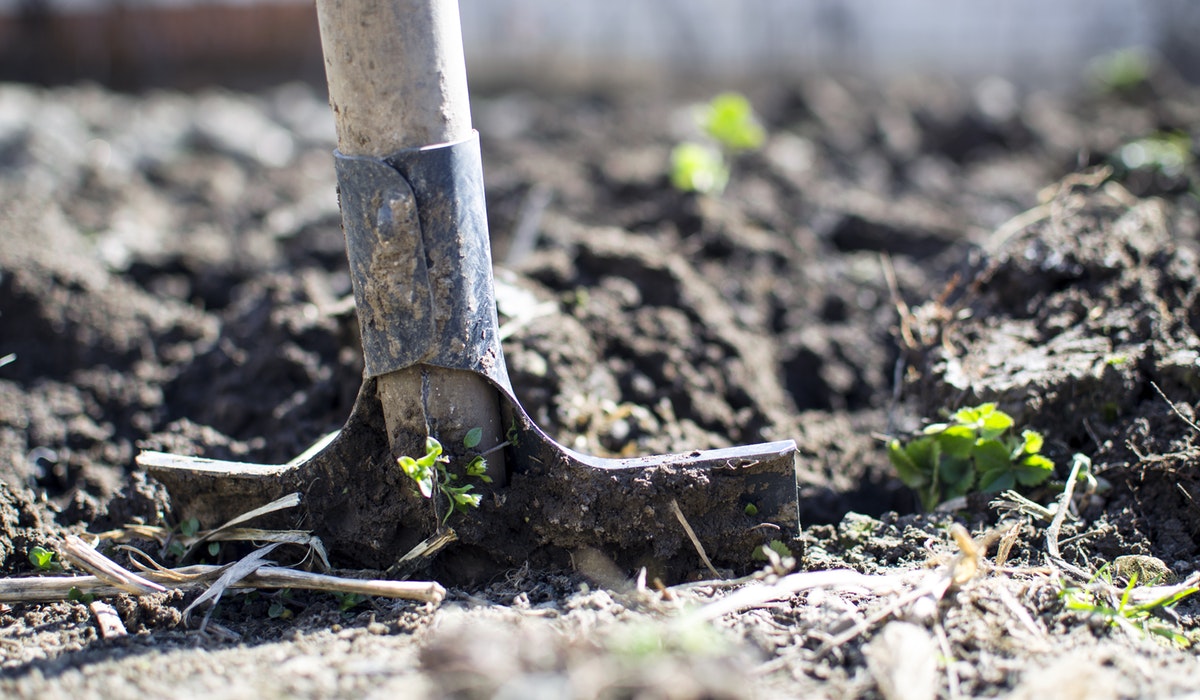
There have been numerous calls for young people to enter the agricultural sector, however, a myriad of challenges have been identified, from the lack of ownership of land, funding and access to the market, which continue to hold them back from doing so.
To dig deeper into these challenges and to identify possible solutions we turn to two thought leaders in the agricultural space.
Dimakatso Sekhoto is the founder of GrowthShoot which promotes youth employment in agriculture, she is the managing director of Makolobane Farmers Enterprises, as well as a member of the African Farmers’ Association of South Africa.
Naude Malan is the convener of the Izindaba Zokudla, a multi-stakeholder engagement project aiming to drive sustainable urban farming in Johannesburg. He is also a senior lecturer in Development Studies at the University of Johannesburg.
We need young talented people because of the challenges we face in the agriculture sector, with regards to climate change, to be able to feed people efficiently and safely – Dimakatso Sekotho
No opportunities for young people? Malan and Sekhoto weigh in on what’s needed to make the sector more attractive.

On the challenges holding youth back
‘Lack of land, capital and knowledge’ – “The first is access to land which is still an issue for many young farmers. If you don’t come from a farming background, it’s very unlikely that you will have access to land. Lack of capital, to be able to buy the farm whether it’s through government, the processes are torturous to say the least.
“Then there’s also a lack of knowledge about the actual farming practices about running a business, getting into markets, finding capital. These are challenges new entrants face so it’s not only focus on youth.” – Dimakatso Sekhoto
‘The current system is broken’ – “The usual challenges apply, from finance to technology to knowledge to business management skills. However, new entrepreneurs need to be able to critically analyse the current system.
“They must realise two things: the system needs to change to create new viable opportunities (remember the system is saturated, historical and inefficient) and that sustainability, particularly thinking about the circular economy and say, using waste as a resource and cycling it back into the enterprise, is what will give new entrepreneurs a competitive advantage.” – Naude Malan
New opportunities with new kinds of agricultural technologies need to be pursued – Naude Malan
On the youth’s perceptions of the sector
‘A tough and outdated sector’ – “Young people often think it is hard work, and that they will be exploited in agriculture. Agriculture also looks outdated and also implies staying away from urban areas, away from centres of culture. Let’s face it, farmers, even the best of them, are finding it hard to survive.
“You need lots of capital to survive and there is a considerable opportunity cost and threshold to cross to start farming sustainably if you want to farm in ‘traditional’ rural areas. These kinds of farming will become difficult in the future not least due to climate change. New opportunities with new kinds of agricultural technologies need to be pursued. Very few see it as a highly specialised knowledge-intensive and lucrative job.” – Naude Malan
‘No opportunities available’ – “The perception that youth have about agriculture is that they don’t know much about it. The view is really about farming, that’s what everyone thinks, which gives an impression of hard labour, being in the sun, being in rural places where nothing is exciting happening there and in South Africa’s context we think of white old men so that’s also another perception that youth have about agriculture.
“I think those are the things that result in them not getting into the industry, mainly just lack of exposure and understanding the full opportunities that are available in the industry.” – Dimakatso Sekhoto
On opportunities available
‘Beyond farming’ – “I think exciting ways and interesting ways that youth haven’t thought about is how to get into the marketing aspect of it, to be able to provide branding for farmers, farming operations for technology to help farmers run their farms more efficiently.
“Information management is a really interesting field as well that you can get into which is also about supporting farmers, providing relevant information whether it’s with regards to weather or prices in the market or access to the market there is so much info that the farmer needs that they don’t have time to manage and someone can create a job out of that.” – Dimakatso Sekhoto
‘Alternative farming methods’ – “Agriculture is not only possible in rural areas with lots of land, using expensive equipment and chemically-intensive production techniques. It is possible to farm profitably on rooftops, in containers and using technology like hydroponics intensively.
“It is also possible to do very well with organic, agroecological and permaculture techniques. These are more profitable than mainstream farming. Opportunities in production are not enough, and further opportunities need to be sought in the value chain, from packaging to marketing, to transport, and even direct sales to the consumer through ICT technologies.” – Naude Malan
There is no better way of encouraging youth [to enter] the sector than showing them that other youth are doing really well. Our youngsters want a good life they want to be able to know that they can make a good career and secure a great life – Dimakatso Sekhoto
Why Agriculture Needs Youth Participation
‘Ensuring food security’ – “It goes without saying why it’s important to get youth into the agriculture sector, mainly for food security. We need young talented people because of the challenges we face in the agriculture sector, with regards to climate change, to be able to feed people efficiently and safely and be able to make sure that food reaches everyone and also so it’s cost-effective for everyone, and also being responsible on the earth and being sustainable and all of that.
“The industry needs really smart young people to come and develop the solutions that will actually allow us to be able to achieve those goals with regards to food security.” – Dimakatso Sekhoto
‘New kinds of urban markets’ – “Entrepreneurs need to understand that radical innovation is needed. The current system and its peculiar and long value chains is saturated. New entrepreneurs need to understand the current food system and its history to see how long and inefficient value chains can be disrupted.
“Entrepreneurs could also develop new kinds of urban markets. Townships would be very open to these opportunities. Local production in intensive small farms could be sold at lower than retail prices as farmers can sell directly to consumers. Farmers thus gain a better price by selling wholesale. Local spaza shops can also be integrated with such a local urban agricultural system. This will build capacity in townships and allow the accumulation of value and capital in townships.” – Naude Malan
What’s needed to attract more young people into farming
‘Young farmers are succeeding’ – “There is no better way of encouraging youth [to enter] the sector than showing them that other youth are doing well. Our youngsters want a good life, they want to be able to know that they can make a good career and secure a great life. The majority of youth in this country just aspire to have a good life so they must be able to have a home, get the kids to school, be able to drive nice cars, they must be able to have money in their pockets.
“You’ve got to make a deliberate effort to make sure that youth in this industry succeed and in doing so that will help us as an industry to find those solutions as to when youth will come in, how do they succeed. If no one is making an effort to find those solutions then you might as well not bother to get youth into this industry because they won’t be supported, they won’t be able to make a success.” – Dimakatso Sekhoto
‘An accessible sector’ – “Let them understand that agriculture could be cheap and accessible with the right knowledge, like Zero Budget Natural Farming in India. To know things is worth more than to have things. It allows true autonomy and freedom.
“The youth do not like agriculture as the threshold is too high and too inaccessible. They do not want to exploit farm workers and nature to make a living. Farming was seen as a hard technology and not a gentle way of creating value for people.” – Naude Malan






